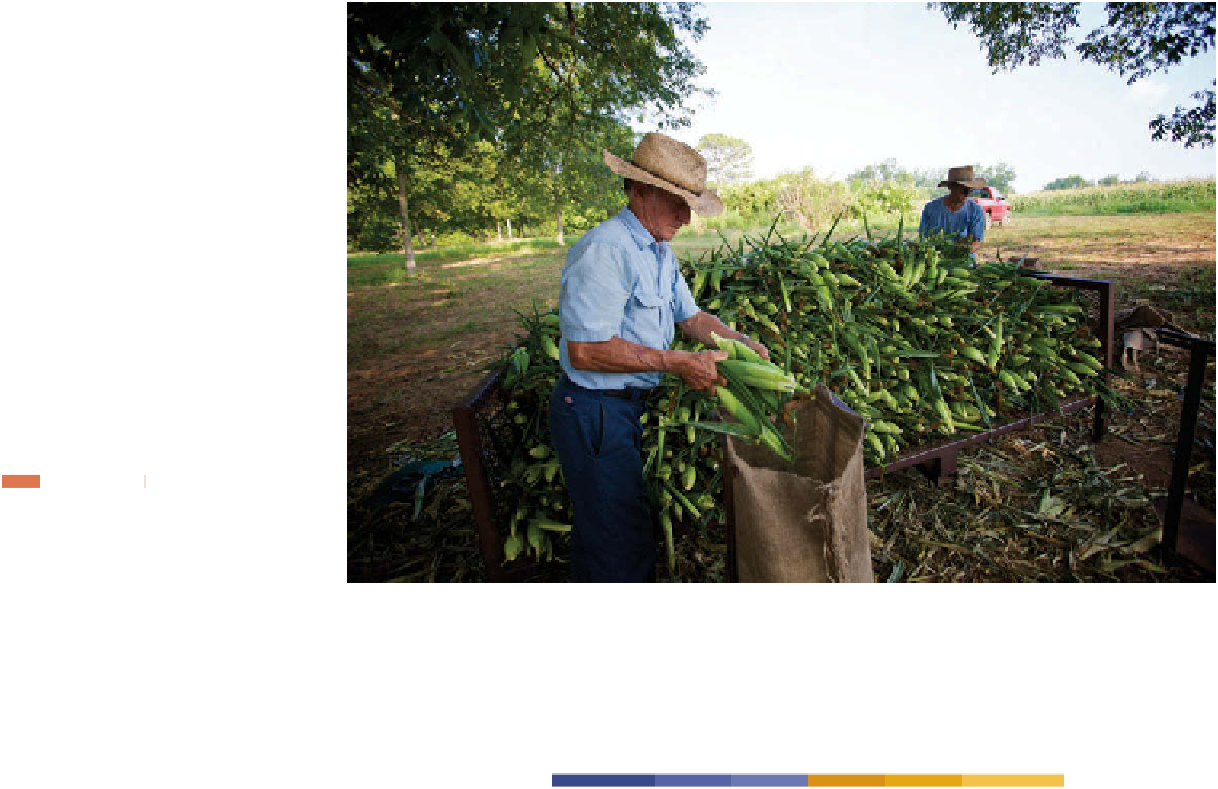Geography Reference
In-Depth Information
Figure 14.9
Belforest, Alabama.
Buford and
Stewart Foster count and bag corn to
be sold at a farmers market.
© Jeff and
Meggan Haller/Keyhole Photo/Corbis.
began in Japan in the 1960s when a group of women “dis-
satisfi ed with imported, processed, and pesticide-laden
food, made arrangements directly with farmers to provide
natural, organic, local food for their tables.”
From its hearth in Japan, CSAs diffused to Europe
and then to the United States. The fi rst CSA in the United
States was in the Berkshire Mountains of Massachusetts.
By 2011, the number of CSAs in the United States had
risen to over 4000 according to Local Harvest, an orga-
nization that maps CSAs to help consumers and farmers
connect (Fig. 14.9).
Through a CSA, a farmer and consumers create a
network whereby both assume risk. Consumers pay for a
share of the farmer's harvest, typically fruits and vegeta-
bles, before the growing season begins. Farmers use the
cash to purchase seed and plant and then deliver goods to
consumers over a period of weeks during the growing
season. Both Schnell and Local Harvest agree that CSA
farmers typically use organic growing standards (cha
pter
11) but do not take the time to certify their land and pro-
duce as organic.
Think about the information you are exposed to through the
Internet, television, and other media each day. Make a list of
the companies that publish or produce these news sources
you use. Go to
Columbia Journalism Review's
website, Who
Owns What (http://www.cjr.org/resources/). Determine
how many gatekeepers control the information you use to
make decisions and understand your world.
Summary
Globalization has been compared to a runaway train blowing through stations leaving
much of the world to stare at its caboose. Yet this description is not entirely accurate.
Globalization is a series of processes, not all of which are headed in the same direction.
Even those processes headed down the globalization track are often stopped, sent back
to the previous station, or derailed. The globalization track is not inevitable or irrevers-
ible (in the words of
O'Loughlin, Staeheli, and Greenberg). Many of the most important
globalization processes take place within networks of global cities (see chapter 9), of
places linked by popular culture (see chapter 4), of gover
nments (see chapter 8), of trade












































